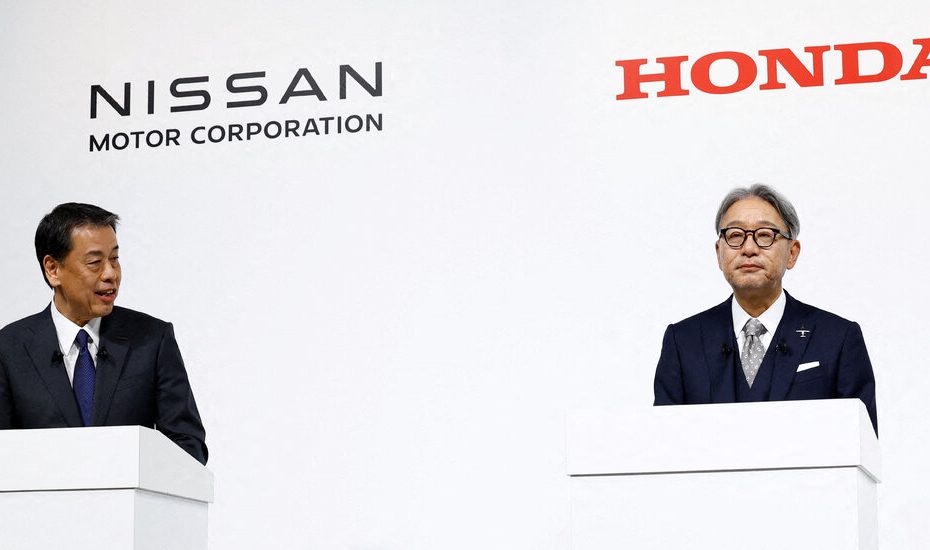A merger of $ 50 billion between Honda Motor and Nissan Motor, which would have established one of the world's largest automatic groups, has been canceled.
In December, the second and third largest car manufacturers in Japan said they explored plans to combine their activities with the aim of sharing costs and jointly developing vehicles of the next generation. Both companies said on Thursday in a statement that they were walking away from conversations.
The rapid reversal underlines a growing recognition in the industry that postponed in the past, often based on the past to build scale and increase market share, perhaps not the answer for car manufacturers who clamber to make up fast technological changes.
Traditional car manufacturers in Japan, the United States and Europe are confronted with the increasing competition of newcomers such as Tesla and BYD from China, who have set up an impressive lead in electric vehicles and technologies that make Semi -Autoonome riding and external updates possible.
As the car industry shifts to vehicles that look like 'robots on wheels', merging two giants to try to catch up' only car manufacturers who go back to what they know, instead of embracing change, “said Lucinda Guthrie , the head of Mergermarket, a data provider.
For example, Ford Motor and Volkswagen worked together a few years ago to work on electric vehicles and driving autonomously. The companies ultimately closed their self-driving car initiative and have received few benefits from working together on electric vehicles.
Honda had a partnership with General Motors and currently sells two vehicles for electric sport Utility, the Honda Prologue and Acura ZDX, which are manufactured by GM, but in 2023 the companies said they would not expand their partnership outside those two models.
Even at the start of his conversations with Nissan, Honda's top managers for internal resistance to merging with another car maker were stood. Nissan restructured his activities after a significant drop in profit and Honda's managers were concerned about Nissan's financial health. They also doubted the potential benefits of a deal.
Honda ultimately proposed a take-it-or-Leave-it plan to turn Nissan into his subsidiary. Nissan rejected the offer, because the derogether from earlier ideas to create a holding with both brands as subsidiaries. Nissan's leadership found the proposal undervalued the company.
Mrs. Guthrie van Mergermarket said she thought Nissan could take advantage of the search for a new partner, possibly outside the traditional car driving.
For both Nissan and Honda: “The pressure they are confronted with would not have changed with the merger,” said Mrs. Guthrie. “You embrace the future, or you stay with what you know,” she added. “Maybe it is an apart from what is needed.”
A possible worshiper for Nissan is the Taiwanese electronics giant Foxconn. De Jonge Liu, the chairman of Foxconn, said on Wednesday that the company would consider buying an interest in Nissan, although it would be preferable to just work with the automaker.

